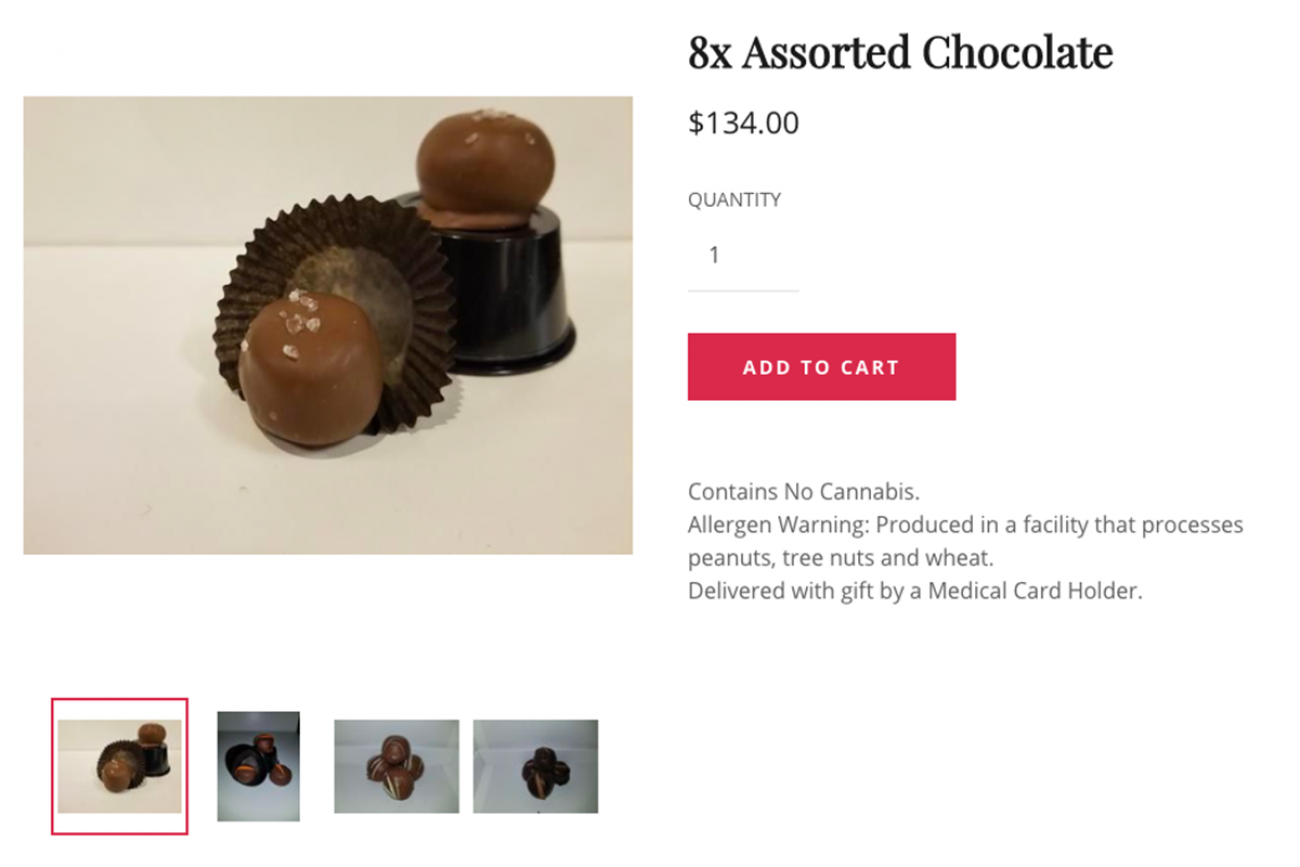Legal marijuana didn’t end black market elsewhere. What can Michigan learn?

Out of the darkness and into the light.
That’s how Michigan marijuana proponents framed the state’s transition to legalized pot — a regulated system they promised would bring new tax revenues, expand access for medical patients and protect public safety by making it unnecessary for consumers to buy from underground pot dealers.
But if Michigan’s experience is like that of other states with legalized weed ‒ among them, Washington, Colorado and California ‒ illegal sales will remain alive. Regulators in those states tell Bridge that underground sales continue to flow to neighboring states where recreational pot remains illegal.
The result: unrealized tax revenue, fewer sales for licensed businesses and customers who continue to be exposed to untested weed.
Related: Meet the ex-drug cop who now regulates Michigan weed
“That’s definitely a concern and one of the biggest concerns of law enforcement,” said Nickolas Galendez, an attorney at the Cannabis Legal Group, a Royal Oak-based law firm specializing in marijuana law. Industry advocates hope “the risk of federal charges for trafficking and interstate commerce won’t be worth the reward.”
Legalized pot found its first home in Washington and Colorado, which voted to approve recreational use in 2012. Buyers there mostly made the switch to a regulated market, choosing to buy cheap, tested weed from a dispensary instead of their neighborhood dealer. But falling retail prices created an incentive for growers to sell in neighboring states where pot remains illegal and can fetch a higher price.
In California, where the fledgling recreational industry is just over a year old but the medical industry has existed for more than 20 years, there is a similar issue. Sales leach east into states where marijuana remains illegal. But even local pot smokers don’t always buy from state-approved outlets, citing a complex two-part licensing system and continuing consumer confusion over which retail shops are legal and which are not.
Related Michigan marijuana stories:
- Whitmer administration changing tone around Michigan marijuana regulation
- You can smoke pot in Michigan but not buy it. What you need to know.
- You’ll never guess which Michigan counties loved weed (Kidding, you will)
- Local governments across Michigan vexed over how to handle legal weed
- What’s legal, and what isn’t, under Michigan recreational marijuana plan (slideshow)
Michigan’s Department of Licensing and Regulatory Affairs (LARA) has until December to make applications available for recreational marijuana facilities, which means residents likely won’t be able to head to a recreational dispensary to buy pot until early next year. In the meantime, they are allowed to use marijuana but not buy it, which makes it likely they’ll continue to buy pot illegally, or from “gray” market services like gift-based dealers.
When Michigan’s recreational industry gets up and running, Michigan will be the second-largest pot market in the country after California, based on population. As businesses clamor for a piece of the industry and consumers embrace their newfound rights, experts in cannabis law say the state is likely to experience many of the same growing pains as their western counterparts — including the survival of a black market that will feed neighboring states.
The danger of over-production
When Colorado’s first recreational cannabis retailers opened their doors, the getting was good. Consumers were eager to get their hands on newly-legal marijuana and the existing licensed growers and dispensaries could charge what they wanted — over $125 per ounce in 2015.
In the four years since, Colorado’s marijuana prices have dropped like a stone. Now consumers pay just over $50 per ounce by 2018, according to reporting by the Coloradoan newspaper.
The same trend happened in Washington state. Now, consumers can buy weed at less than $7 per gram including taxes, said Brian Smith, communications director for the Washington State Liquor and Cannabis Board. Industry members estimate it’s actually closer to $1.50 per gram, or just over $40 per ounce. Locals buy from the dispensary, but there’s a strong incentive for underground growers to sell out of state. Some illegal growers even mimic the look of licensed facilities and operate out in the open.

“No one can put their finger on what impact (the low cost of marijuana) has had on the black market,” Smith said. “But I would have to question why would anybody buy from the guy down the street when they could go to a store with a huge variety that's been lab tested and is cheap.”
California’s product is massively overproduced, making it similarly cheap (just over $60 per ounce). The state grows up to 15.5 million pounds per year but sells only 2.5 million, according to a 2017 report for the California Department of Food and Agriculture, indicating the product is being sent out of state for consumption.
There are tens of thousands of unlicensed California businesses and locals still buy primarily from the black market. Most of those facilities haven’t been licensed in the year since recreational pot was legalized, but nor have they been shuttered. Alex Traverso, chief of communications for the California Bureau of Cannabis Control, attributes the limbo to a two-tier state and local regulatory structure. The state has had few resources to enforce the law, so black market dispensaries still sell pot, and their clients keep buying.

What Michigan can learn
Michigan is far from having the booming production conditions that incentivize out-of-state sales. In fact, there’s a major shortage of marijuana as slow licensure has left existing grow facilities struggling to provide product for medical marijuana patients.
This month, the state’s marijuana facilities licensing board — under pressure from industry advocates and new Gov. Gretchen Whitmer — voted to extend temporary rules that allow unlicensed shops to stay open and for caregivers to provide pot to dispensaries.
It will likely take years for the state to reach equilibrium in the cannabis market, experts say. But when it does, Michigan runs the same risk of uncaptured state tax revenues as its predecessors. With the exception of Canada, none of Michigan’s neighbors has legalized recreational marijuana.
The gateway to Colorado and Washington’s problems started early. In Washington, licenses were cheap and business success rates were surprisingly high, leading to over supply. In Colorado, medical marijuana patients could possess up to 99 plants at a time, which made it confusing for law enforcement to distinguish between illegal grow operations and legal personal use.

Colorado passed a law in 2016 lowering that number to 12 per household, a limit “that provided some bright line for law enforcement in response to some of the challenges that we saw,” said Dominique Mendiola, deputy director of regulation, communication and policy with Colorado’s Marijuana Enforcement Division. But “we still see cases of Colorado marijuana seized in other states, so that’s a focus for us.”
Michigan already has a 12-plant limit per person, and the barrier to licensure for commercial facilities is high: It costs $6,000 to apply for a commercial license and the required regulatory assessment fee paid by each licensee is $66,000 annually — though that could change as more facilities enter the system, said LARA spokesman David Harns.
Colorado and Washington use a tracking system that follows weed from seed to sale in an effort to make sure licensed growers aren’t smuggling product underground, which Michigan has already emulated. The system relies on growers to input information about their crops on their own, which is later randomly checked by LARA officials. In some areas, that has allowed licensed growers to cultivate off-the-books pot for sale on the black market — though state officials who spoke with Bridge Magazine said that’s rare.
Because of the tracking system, caregivers (people licensed to grow and purchase medical marijuana for patients), home growers and underground grow operations make up the bulk of diversion to other states in Colorado and Washington rather than licensed growers, say local regulators.
“Caregivers have been filling a need for medical marijuana patients but there are a lot fewer regulations and requirements put on the caregivers in terms of verifying where their products are going, testing their products… so there could be opportunities there for sure,” for product diversion to other states, said Josh Hovey, spokesman for the Michigan Cannabis Industry Association who formerly worked on the Proposal 1 campaign that lead to voters approving recreational pot in Michigan in November.
Regardless of regulation, the force of supply and demand means it’s likely some weed will make it to Michigan’s neighboring states.
Advice from predecessor states may be unwelcome to industry advocates: Overregulate.
“It’s easier to start off tight and then release the pressure than to allow something and take it back,” said Smith of the Washington State Liquor and Cannabis Board. “So go slow, recognize that it’s a new industry and we’re all kind of learning as we come.”
California, which is struggling to transition to a regulated market after decades of loosely regulated medical marijuana, may more closely mirror developments in Michigan, where largely unregulated facilities operated between 2008 and 2016. A California industry association estimated that only 5 percent of growers in the state are licensed, said Traverso, of the California Bureau of Cannabis Control.
California law enforcement agencies sometimes rely on third-party websites like Weedmaps to catch illegally operating facilities. State officials say they are trying to better educate operators this year on the need to become licensed, while urging customers to avoid the black market.
“I would definitely preach patience,” Traverso said of Michigan. “The one thing that we have done well here is we really involved stakeholders… we had to say, ‘Let’s make this a collaborative process as we’re moving towards regulations.’”
Michigan's “gray” marijuana market
Michigan is still a year away from having a regulatory system that will likely steer underground pot customers above ground. In the meantime, “gray” market options are popping up to fill consumers’ needs.
Pop-up businesses are selling products like art, books or chocolate at a high price that comes with a free “gift” of marijuana. Private social clubs offer clients the chance to play games, snack on sandwiches and smoke weed. You can even get CBD oil in your cocktail at some local bars.

Experts in cannabis law say these are most likely illegal, but whether these businesses' founders get in trouble depends largely on where they operate. Michigan State Police spokeswoman Shannon Banner said state police will “take our direction regarding enforcement based on what acts (local) prosecutors are willing to criminally charge in each specific instance.”
It’s too early to calculate where prosecutors are likely to crack down on gray market activity, Banner said. Besides, “we’re mostly focused on illegal drugs like heroin and meth.”
The gift-based selling system should be a legal concern for gray market entrepreneurs, said Galendez of the Cannabis Legal Group.
“They’re trying to vaguely indicate that this isn’t a gift,” he said. “But the fact is that if there is any kind of marijuana (being exchanged) that could be considered advertising or promoting to the public, which violates that adult-use law and could get you exposed to a civil infraction.”
Hovey of the Michigan Cannabis Industry Association said gray market services are likely to dwindle once the fully licensed recreational system gains ground in 2020. He hasn’t heard of any gift-based dealers being prosecuted yet, “but they’re definitely pushing the limits of the law.”
In the meantime, he said, consumers should know that if they’re buying product from gray market providers, it’s not tested. That means it could be contaminated with pesticides, mildew or fungus.
“It really is a buyer beware situation because you have no idea how they obtained it, whether it was tested or what it was grown with,” Hovey said.
More Michigan marijuana stories:
- Michigan approves recreational marijuana. What you need to know.
- Michigan ballot issues: What to know about Prop 1 (recreational pot)
- Marijuana in the workplace: Prop 1 has Michigan employers flummoxed
- Message from marijuana country: We love legal pot. Will Michigan?
- Support legal pot in Michigan? Know the latest health risks (and benefits)
See what new members are saying about why they donated to Bridge Michigan:
- “In order for this information to be accurate and unbiased it must be underwritten by its readers, not by special interests.” - Larry S.
- “Not many other media sources report on the topics Bridge does.” - Susan B.
- “Your journalism is outstanding and rare these days.” - Mark S.
If you want to ensure the future of nonpartisan, nonprofit Michigan journalism, please become a member today. You, too, will be asked why you donated and maybe we'll feature your quote next time!




